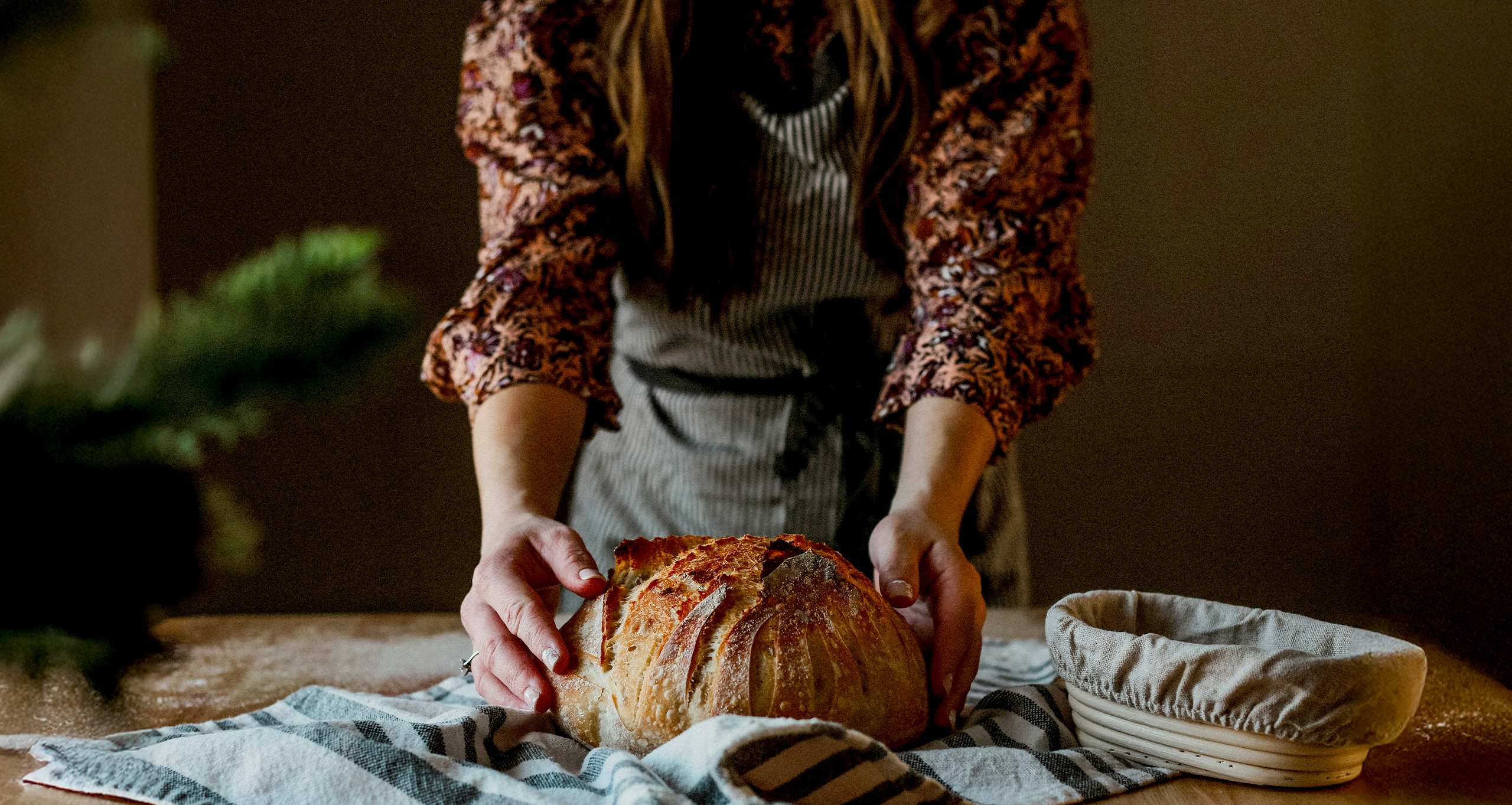Pitfalls of Tradwifery
Published on May 12, 2025

The long-lived “tradwife” trend is a strange one. Let’s start with the fact that most social media trends often don’t have “staying power.” The rapidity with which social media-born style, dance, and linguistic trends come and is dizzying. The whirlwind buzz, however, makes it all the more fascinating when one trend does last.
The “tradwife” phenomenon has taken social media and cultural conversation by storm over the last few years, creating a platform for conversations about women’s roles, homemaking, and the integrity of how we present our lives online.
Homemaking and the feminine vocation
As with many things that quickly gain societal steam, I think the tradwife trend strikes chords of something real, good, and true within the human heart—otherwise it would not be popular. Conversely, I don’t think striking those chords comes without its pitfalls, and that the presence of the latter makes the trend more negative than positive to begin with. Parsing out the elements of this trend can help us identify the truths we need to hold onto and lasting change that can uphold these truths beyond any perilous and superficial trend.
The rise of “tradwives” highlights the disdain with which Western society has come to view homemaking.
The rise of “tradwives,” first and foremost, calls attention to the lack of regard in which Western society has held homemaking. It is natural for women in particular to desire to create a happy, healthy, and thriving home—this instinct has been, at best, ignored and, at worst, held in contempt over the last several decades. You may remember Simone de Beauvoir’s infamous line to Betty Friedan: “No woman should be authorized to stay at home and raise her children.”
Tradwives pride themselves on, among other things, reclaiming the dignity of homemaking by dedicating themselves entirely to it, whether or not they have children. While there are reactionary elements to this—something I’ll say more on later—the reality that the dignity of homemaking needs to be prioritized and upheld is completely sound.
Tradwifery gone awry: Kitsch in the kitchen
The pitfalls of “tradwifery” arise first when homemaking becomes driven by kitsch, rather than by how each individual home needs to be run. Creating a beautiful home is a worthy goal, but as any homemaker knows, running a home is rarely glamorous. Self-styled “tradwives” whose primary inspiration lives only online can be driven by the need to be Instagram-ready at all times, creating both a false picture of what actual homemaking is like and perhaps sidelining its sacrificial and ordinary nature. “Kitsch” is the key word here—it’s a specific form of imitation, when we care more about the appearance of having a particular thing than the thing itself.
Creating a beautiful home is a worthy goal, but as any homemaker knows, running a home is rarely glamorous.
Another pitfall of tradwifery is that it can demand conformity, rather than recognizing the uniqueness of every woman, family, and home. Homemaking being a priority doesn’t mean women can’t take on other roles (check out how different moms balance work and home life for more). While many women choose to dedicate all of their time to their home and children, if they have them, many women also prioritize creating thriving homes alongside other work.
TikTok-style tradwifery attests that women are happiest when they conform entirely to what the trend dictates, rather than listen to the needs of their own home and family. If women feel pressured to become what social media says a “tradwife” is, that definition is ever subject to change and escalating demands. Roles in a home are meant to be discerned by the people in it, in order to serve the people in it, not the other way around.
Profiteering pitfalls
Finally, the last pitfall of tradwifery is the reality that many tradwives are actually profiting off of their social media presence, which creates a deep lack of integrity in the picture they’re actually creating. I am far from against women making money—but I am against anyone telling people to make certain choices or financial sacrifices, and gaining monetarily from them. This problem extends beyond the tradwife trend into other types of social media influence in general. However, tradwives with minor to major social media followings profit off of people’s—particularly women’s—time and attention. If the foundation of the tradwife philosophy is the complete dedication of one’s time to homemaking, making money off of feeding women’s screen addiction is antithetical and, in many ways, deceptive.
Tradwifery’s greatest pitfall? Grifting.
This “grifting” is, I think, tradwifery’s greatest pitfall. It undermines any potential good of the trend and renders the sacrifice of homemaking a performance, rather than a noble undertaking for its own sake. While we can listen as a society to the need for homemaking’s dignity to be upheld, I think we can dispense with the trend.
Individual women care for their individual homes and families in unique ways; it doesn’t have to be Instagram-worthy, nor does it need to conform to certain standards. Instead, our roles and duties should be motivated by mutual love and care for what God has placed in front of us.
If women are looking for inspiration on how to find joy in homemaking and caring for children—especially if their own mother has not encouraged them—they would do well to look first to the “women next door,” or the women around them who are striving for the life that they aspire to.
Instead, look to the “woman next door.”
While that woman may not literally be next door, she might be next to you in the pew or an acquaintance you can connect more with. Often, we retreat to online sources before even really looking around to see if an example, or even a mentor, is right in front of us. While online “tradwives” come with too many pitfalls, the wives and mothers around us, though definitely not picture perfect, are often exactly who we need.




Tradwifery, like other things on social media, is not reality at all. Unfortunately, social media has been a pitfall in itself for our society. While it has some benefits, the risks far outweigh them. We’ve become numb to reality, instead using social media as an escape, a place where we can escape reality when our life seems lackluster or we can’t handle our problems. It is mostly fiction that dictates to us how things “should” be or how we “should” feel, dress, live. It only creates mostly disappointment because it is so far from the truth of real life. Homemakers and stay at home moms, would do much better not to get involved in social media. Not only is it a complete waste of time, but it takes her away from the actual running of her household, or the time she has to pray or precious moments to spend with her children. Allowing these things and even “Tradwifery” to influence us would be catering to the world. And we are, as Catholics, supposed to be a domestic church. This would mean that superficial nonsense would have no place in our home. Yes, we fall prey to the escapes of life, but we need to make sure we realize these are temptations. Don’t look to social media to solve your problems or make your life better, ASK the Lord. He is the ONLY one who can heal the depths of our soul and give us peace.
Sadly, “social media” as with all electronic “improvements” seem to be fashioning what should be the apex of human life into a nadir of venal selfishness and stupidity. Not a good cobination.
Besides looking at social media on this topic a better option would be to read the book, Home Again and Again. The book has beautiful reflections on homemaking. The book was written by Dr. Ann Recine and Louis Recine. This book is a collection of rich stories on the beauty of the home and people. It’s very personal and yet touches the heart of homemakers.